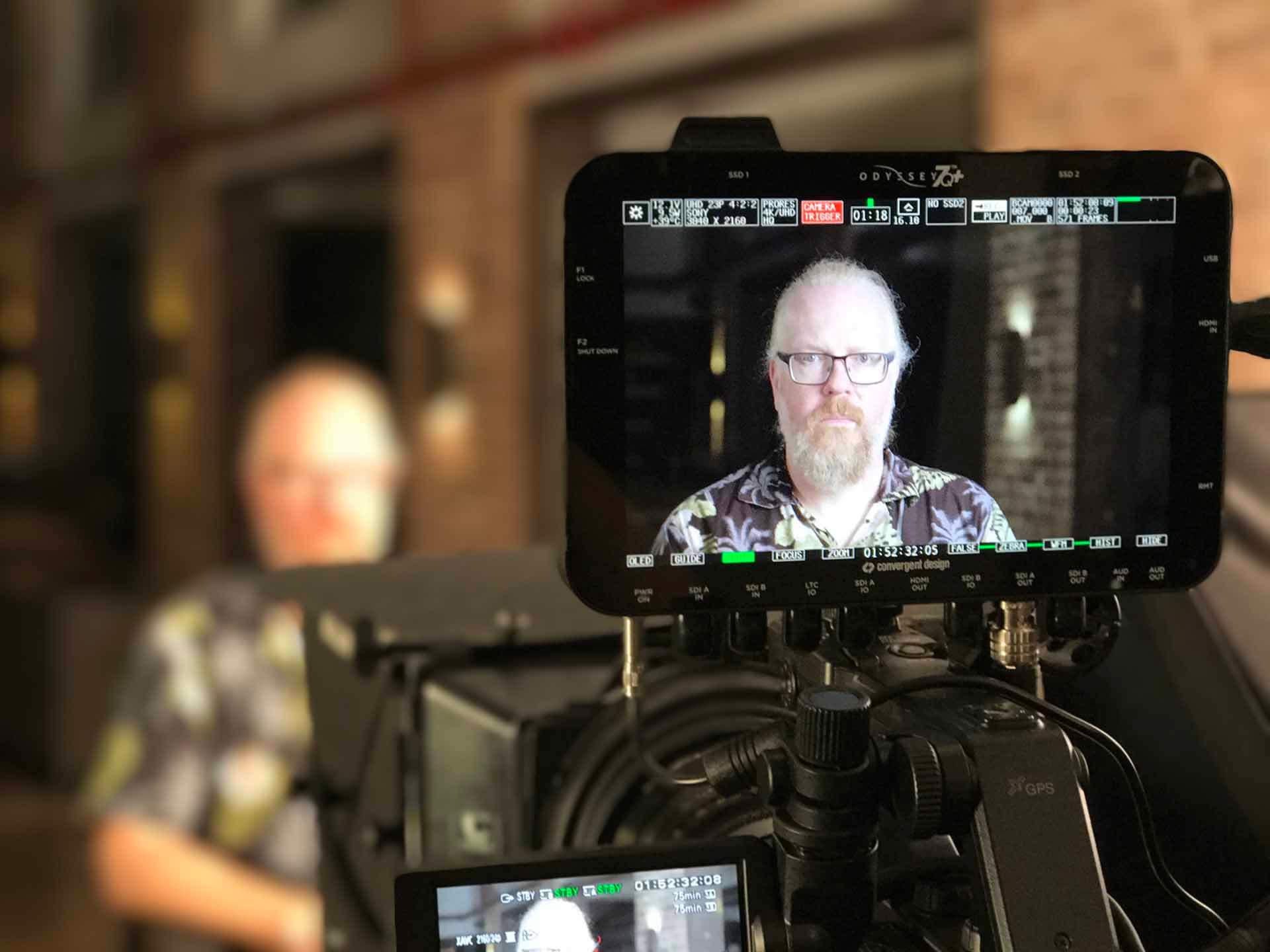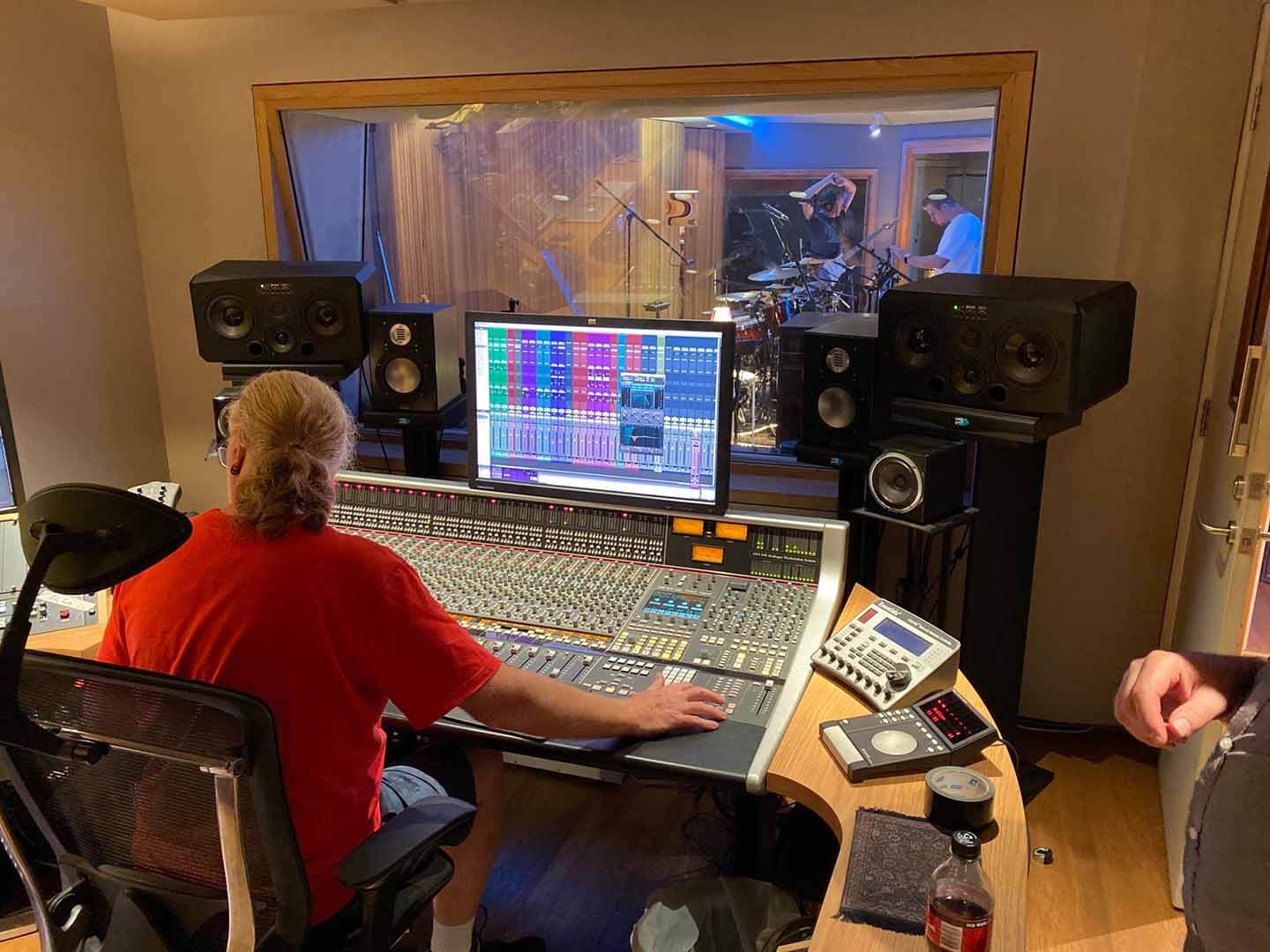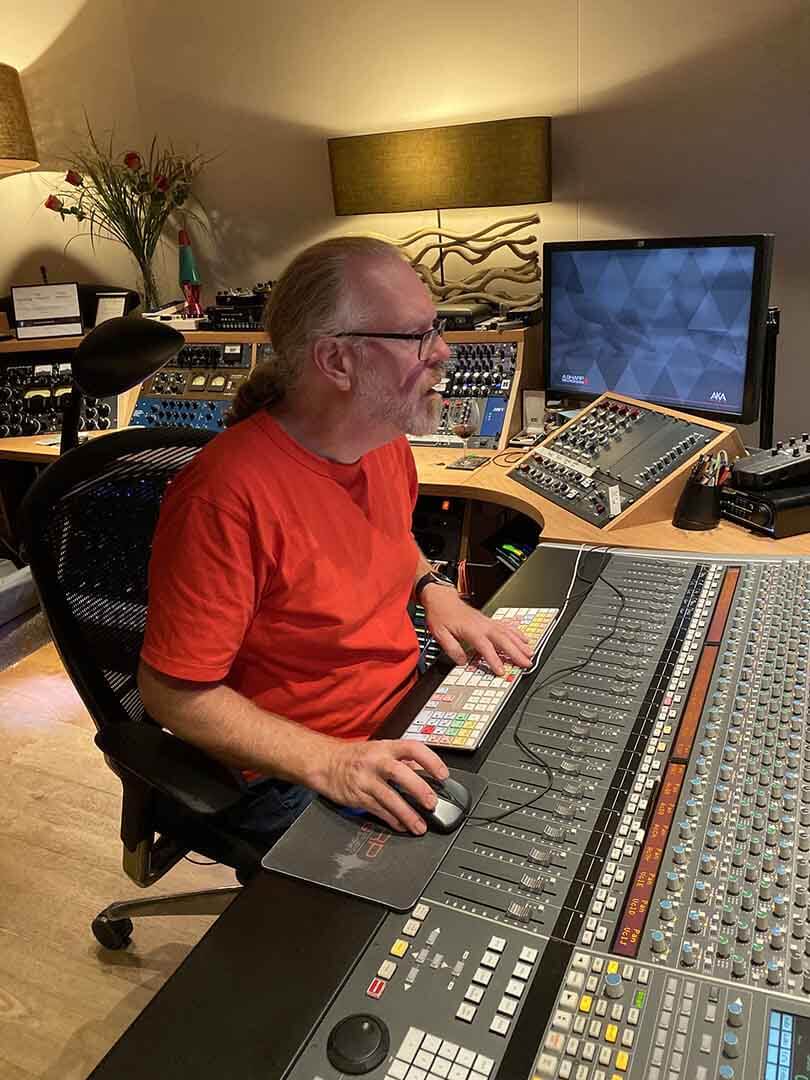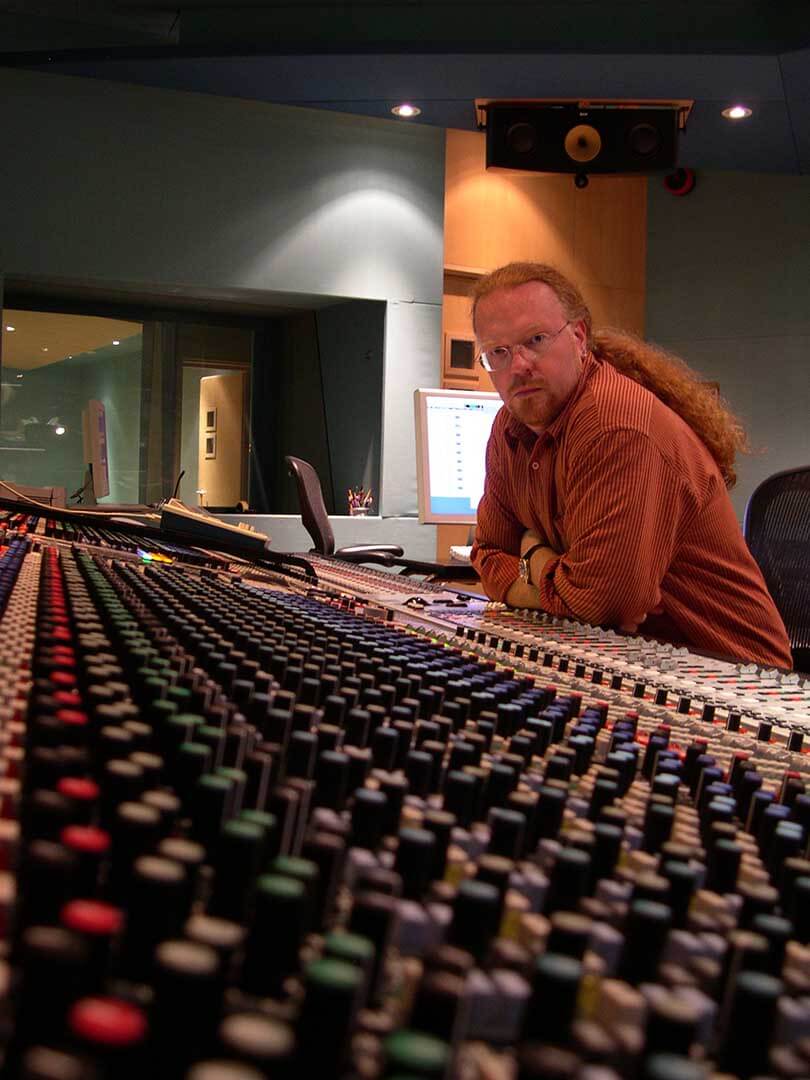Each month we’re going to interview a short list of producers that we believe have changed the face of Sydney music in their own particular and singular way. Each month we’ll be asking these producers a series of questions that will delve into their music, influences and trials and tribulations. So join us on this singular journey into the Sydney Music Producers scene.

1. How did you first get started in the music industry, and what inspired you to become a music producer.
Started at 15 years of age when I was offered a job with a Brisbane cover band as a roadie which grew into a role doing front of house sound. During this time there were various garage bands in which I was a keyboard player until eventually I was tapped on the shoulder in a music shop while trying a new synth by a bass player who literally offered me a job in his band on the spot. A year later we hit the road and music was my career since then until now.
My progression into producing was gradual. I came up in a culture where it was still possible to start as a runner/assistant in a studio and learn on the job from some of the best in the country EVERY DAY. Sadly that culture is not what it used to be and the training ground I was afforded is pretty much a thing of the past. Starting in that lowly role grew into a position as in house engineer and eventually freelance engineer. There are a few producers who took me on as their recording guy and I was able to learn so much from them, but given my respect for them and the title ‘producer’ it was quite a while before I felt it was appropriate for me to assume that role.
2. What is your typical creative process when working on a new track or project.
New tracks are just the best part of the job. So many possibilities to explore and often a new band to work with. Such a joy. The first task is to find out what the artist has in mind for the track and really getting to know it as they hear it. Often it is a matter of steering them through the path to their vision but sometimes it calls for a strip down and rebuild into something that tells the story in a cleaner way. With this in mind, we attack the arrangement and ensure the flow is as good as it can be. Asking questions like ‘do we need four chorus’ at the end’ or ‘is that intro the right thing or is it too long’ or ‘do we need a bridge in this section to break the repetitiveness’ or even ‘are the dynamics working for us or against us’. After that, a lot of the job is clearing out any extraneous parts or helping the players to get out of each others way so those beautiful licks, riffs and parts can be enjoyed by the listener. But most important is to constantly ask ourselves is this in service to the song and be ready for the track to tell you what it needs. If you listen, it often does.

3. Can you share any memorable or unique experiences you’ve had while working in the studio or collaborating with other artists.
Gosh. What a question. I’ll go with memorable and it was the first time I recorded an orchestra.
It was very late in my career before I got to do that. The nature of the studios I came up in were such that the opportunity to record 80 pieces was not an option. They were just not big enough so I never had the chance or training. When you have no experience doing that and you know your client has spent $50 000 to have these people in the studio, you don’t rush at the opportunity to fail. However, recording is recording, and when I had the chance to assist on a few orchestra sessions and learn from them, I jumped at it. I had the fundamentals in my head but had never put it into practice. Those sessions answered the questions that remained and had kept me from stepping in, so I felt ready after that. The satisfaction and joy of hearing that wonderful sound, coming through the speakers as a result of my (and the team’s) efforts for the first time was something I’ll never forget. Always be available for new challenges, no matter how late they appear in your career, but also be sure you won’t let anyone down and you are armed with the knowledge required to take them on.
4. Are there any specific genres of music that you specialise in or particularly enjoy producing.
My very favourite music to work in is funk. Sadly that doesn’t come up too often these days but there is something about it that gets my creative juices flowing immediately. Most of the work that comes my way is in the pop or rock area and I do love crafting tracks with huge sounds and many layers or, as in the case of pop music, squeezing the very best bits until they scream within a song and creating the space in which they can shine.

5. What are some essential skills or qualities that you believe that every successful music producer should have.
Firstly, and most importantly…communication and diplomacy. No one cares how good your sounds are if you create a toxic or uncomfortable atmosphere in the studio. Seems obvious but I have seen this, and the project always suffers. The art of suggestion and encouragement, how to frame a critique of an artists choice, and when to insert yourself in the process are all essential skills and ones that I got to learn by experience from some of the best in the business. I am so grateful for that opportunity.
Secondly… musicality. Understanding how music works and its ability to evoke responses from a listener will get you a long way. I’m not saying you need to be able to understand music theory like a professor or sight read like a concert pianist can, but having a firm grasp on the nature of music and its magic is key. Some of us have a natural understanding and others of us have to acquire these skills but we all have to work at it constantly. After nearly forty years working in music, I still learn every time I engage with it.
And thirdly… the language of the studio. Not the technical stuff and acronyms we all speak about among ourselves but the language that helps an artist to understand what we are getting at. There are so many ways to describe sound to each other and we all use different terms to imply the same thing. One persons furry might be another’s fuzzy. One persons bright might be another’s clear. Build your studio vocabulary constantly. The other part of that is quickly idenitifying your clients vocabulary and speaking their language so you don’t talk past each other.
6. Are there any particular artists or music producers that have influenced your own musical style or approach.
Most of the influences in my career have come from the artists, engineers and producers who I have worked with.
The likes of producer/engineers like Steve James, Mark Opitz, Paul McKercher, Craig Porteils, Greg Clarke, Ted Howard and Mark Roberts.
But there is one bloke who I’ve learned so much from over the years and continues to inspire me to this day and that is Steve Balbi. He has done one of these interviews already. Check it out if you haven’t already. We’ve worked together for nearly 28 years and was one of the first to back me as an engineer in my early career and take me along with him. He is an artist and producer who has never stopped evolving and every road he has taken me down has been a trip into wonderful. I always look forward to working on his projects and his choices both in production and artists he works with are always on point.

7. Can you share any advice for those aspiring to be a music producer or are just starting their careers.
Keep at it. This is a game of experience. The more you do, the more you know.
To quote Mark Opitz, one of my mentors – “bite off a big chunk of life and chew like f**k”.
And don’t forget to stop now and again to take in and appreciate where you are and where you have gotten to.
